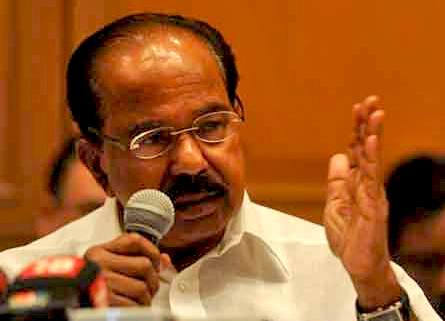New Delhi, May 23: Carrying a sack full of belongings and a backpack on shoulders daily wager Mohammed Sunny and his friend Mohammed Danish are determined to reach home for Eid in Bihar's Araria district, facing all odds stacked up against them.
Shahjehanpur native Adesh Singh with his wife and three little children, who left their residence in south Delhi three days ago, are still scrambling to reach home, haggling with taxi drivers, to take them to their home town charging a reasonable fare.
This was among the many scenes of migrants' life on Friday at Delhi-Uttar Pradesh border touching Ghazipur in east Delhi who are struggling to make their way to their native places amid a COVID-19-induced lockdown across the country.
"We left home three days ago near Chhatarpur, we have walked and rested by roadsides, people gave us food on the way, so we survived. Now, we just want to reach home, we can't survive in Delhi," Manju Singh, wife of Adesh Singh told PTI as she waited at the UP Gate to get a taxi to cross the border on way to her home.
Their three children Alok (12), Ankesh (8) and Rupali (9), all wearing simple masks, were seen squatting on the roadside beside their luggage as their wearied parents, using cloths to cover their nose and mouth, bargained with taxi drivers to take them home, without charging much above the regular fare, saying they "did not have much cash left".
Police personnel could be seen asking many migrants who were marching on foot towards the inter-state border, to turn back.
Many did, but not Sunny and Danish, who feel if "Allah wants us to reach home, we surely will".
Both of them worked at a chemical plant in Delhi, and said, they have been "kicked out" after the lockdown was imposed, making their survival difficult in the national capital.
"We don't have money to pay rent now, or buy food, we have to go home now, what option do we have," Sunny said.
Danish alleged that the poor have been "abandoned" by the government and left in the lurch.
"The government has money to bring home Indians stranded abroad, but can't take home the Indians who have been toiling hard all these years. Is it fair to us," he asked.
"But, Inshallah, we will reach home if the Almighty wants us to, and will be joining our family for Eid, though it will hardly be a celebration this time. But, we want the comfort of being with our family at least," Sunny said.
Eid which marks the end of the holy Ramzan month, will be celebrated either on Sunday or Monday, depending on sighting of the moon.
Lakhs of migrant labourers stranded away from home in Delhi and other big cities have been attempting to reach home in the last two months, a large number of them walking on foot after they found no mode of conveyance.
The coronavirus death toll in Delhi has mounted to 208, while 660 fresh cases of COVID-19 infection reported on Friday, the highest single-day spike here, took the total in the city to 12,319.
Roshan Shrivastav (19), his nephew Shivam Shrivastav (19) and friend Prince Gupta (21), all hailing from Siwan in Bihar, were seen standing on a pavement after being told by the police to turn back from the barricade posted bear the Delhi-UP border.
"We live together in Baljeet Nagar in West Delhi, in a single room. I had come from Bihar after Holi, seeking a job, but then I got stuck in lockdown here without a job. Whatever money I had brought, and Rs 10,000 our parents had sent online, all has got exhausted in these three months," Roshan lamented.
"Our landlord has been very kind, and didn't even ask for any rent after the lockdown, but how long can we survive on charity. And, I don't like being dependent on someone, so we want to go home," he said.
Roshan said, he and Shivam, both also write and sing songs in Hindi and their native tongue Bhojpuri.
"We have written a few lines on lockdown crisis too -- 'Hum mazdooran ke ghar bhejwa da sarkar, nahin to ketna log hiyan par ho jai bimar' (please send us home or else many would fall sick here)," Shivam said, as he stood in scorching heat of May, carrying his leftover cash in pocket and hope in heart.
 Tumkur, Jun 1: The increase in prices of petrol and diesel was to respond to the rupee depreciation, Union Petroleum and Natural Gas Minister Veerappa Moily said today defending the hike effected after the rupee hit a 11-month low making oil imports costlier.
Tumkur, Jun 1: The increase in prices of petrol and diesel was to respond to the rupee depreciation, Union Petroleum and Natural Gas Minister Veerappa Moily said today defending the hike effected after the rupee hit a 11-month low making oil imports costlier.




Comments
Add new comment